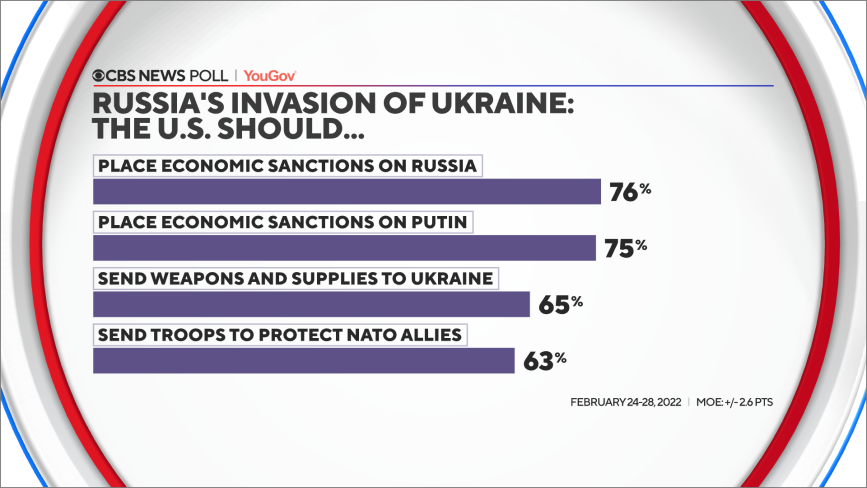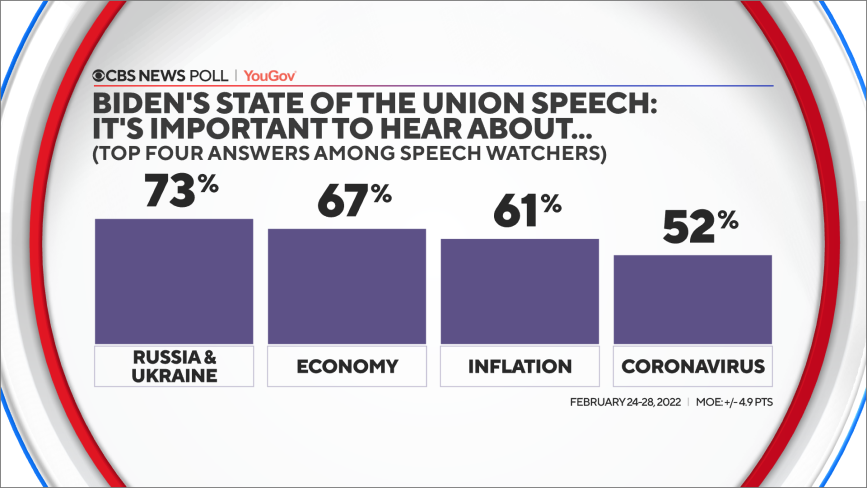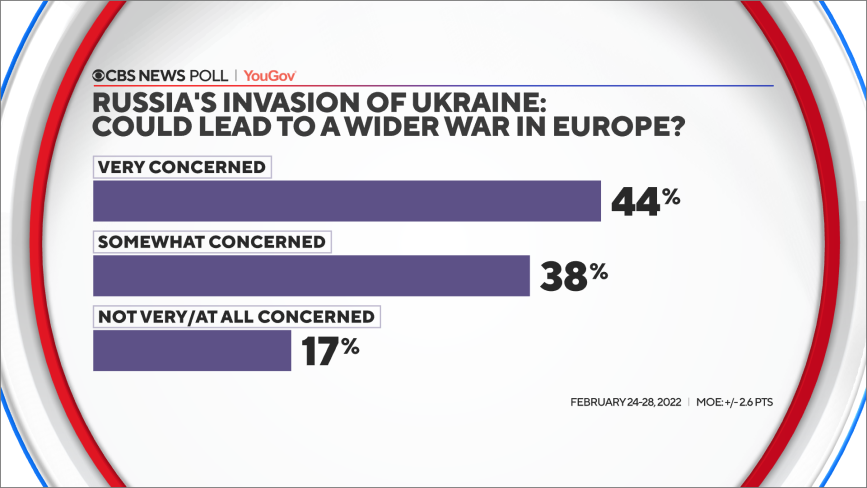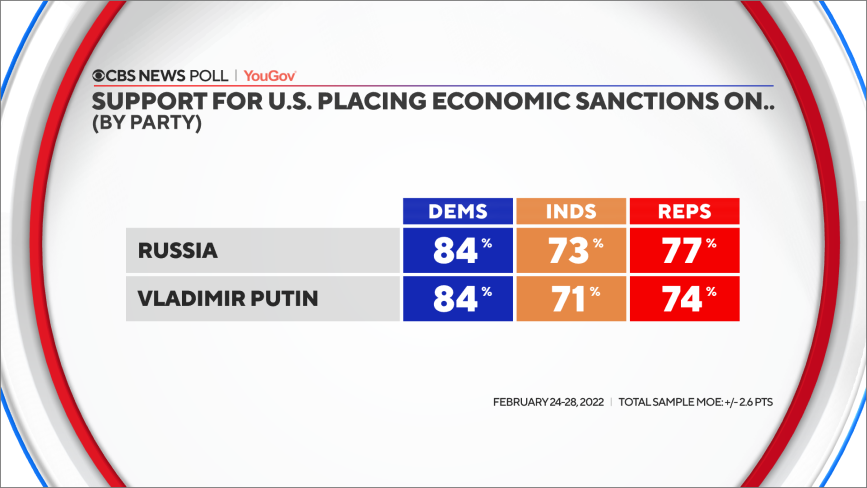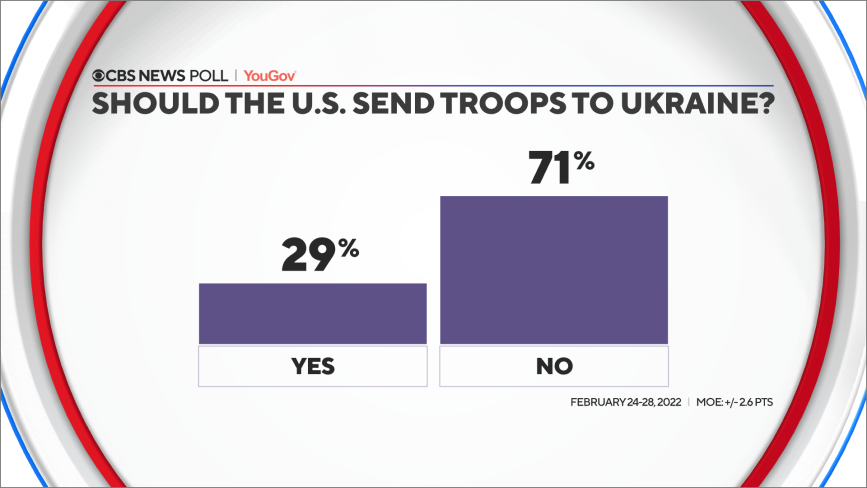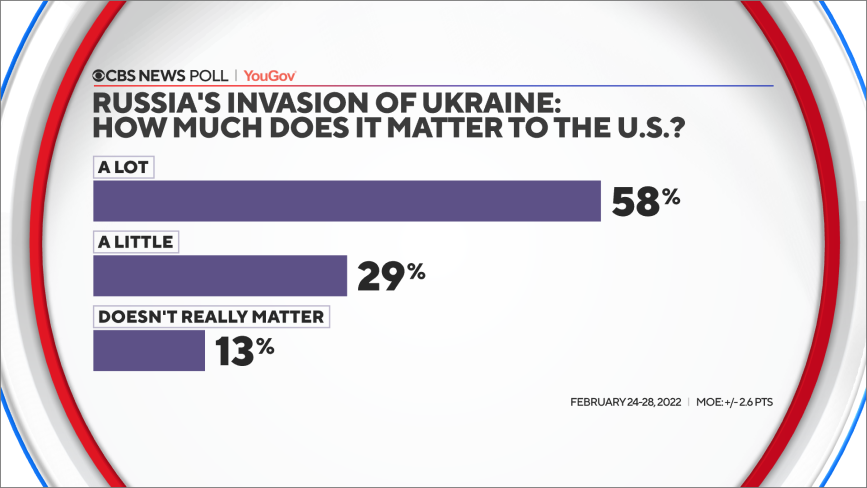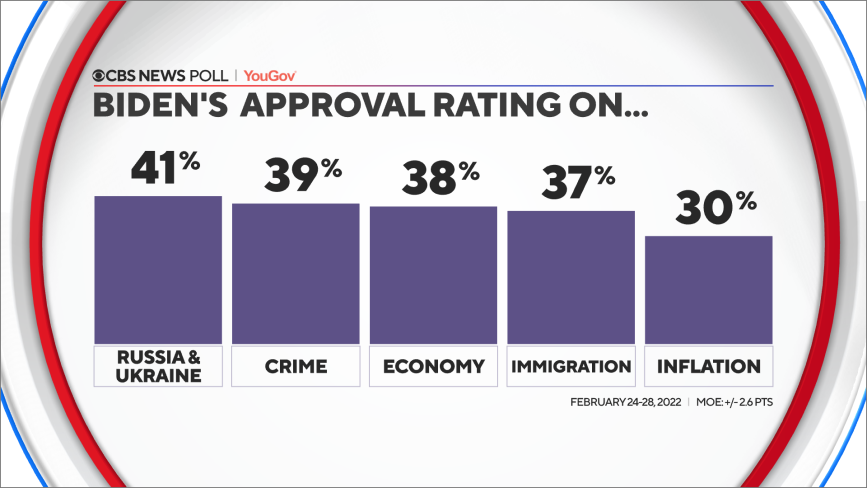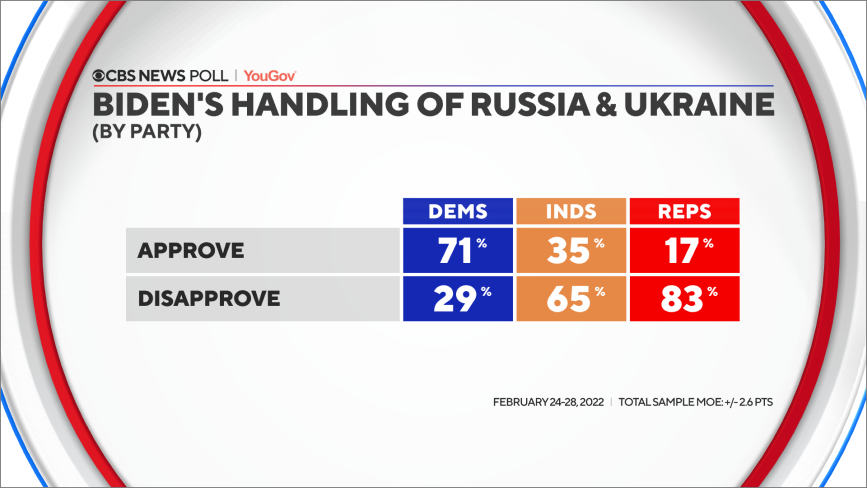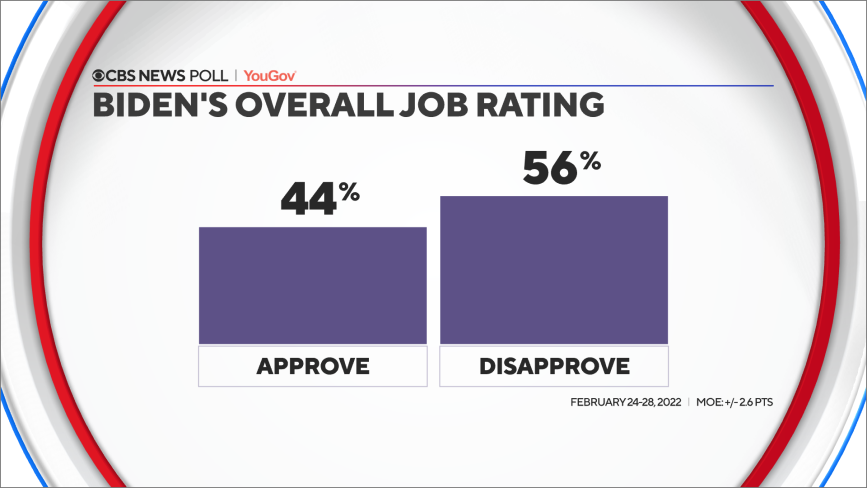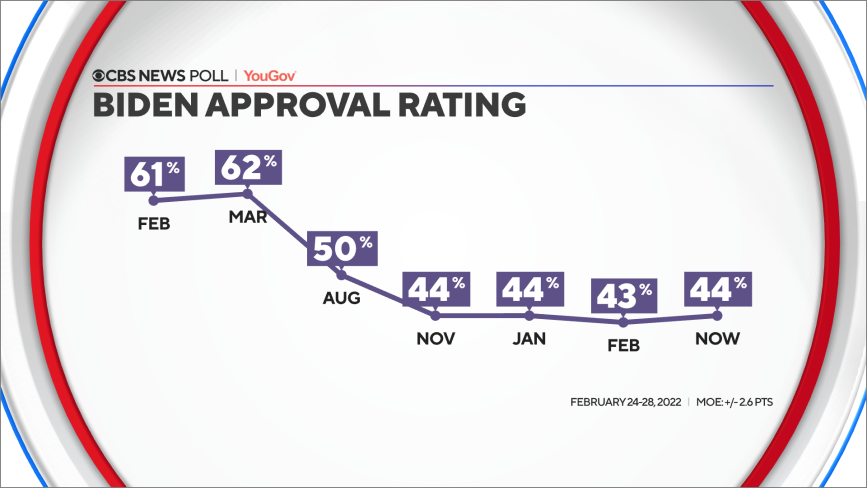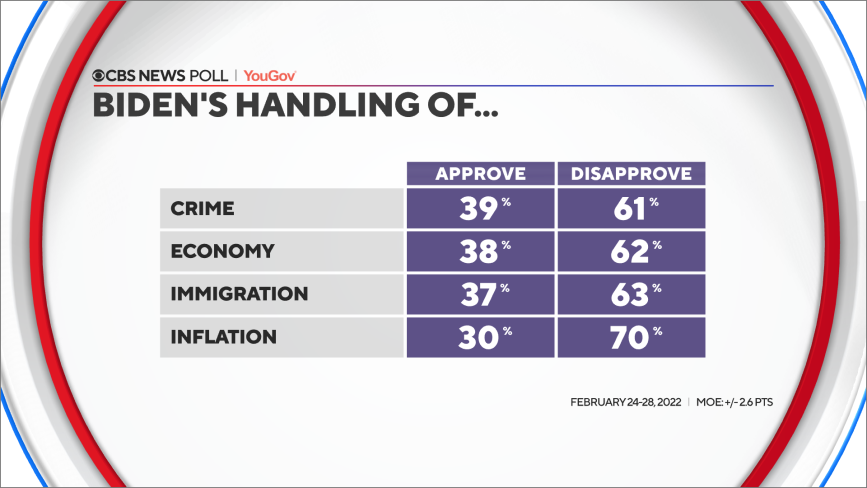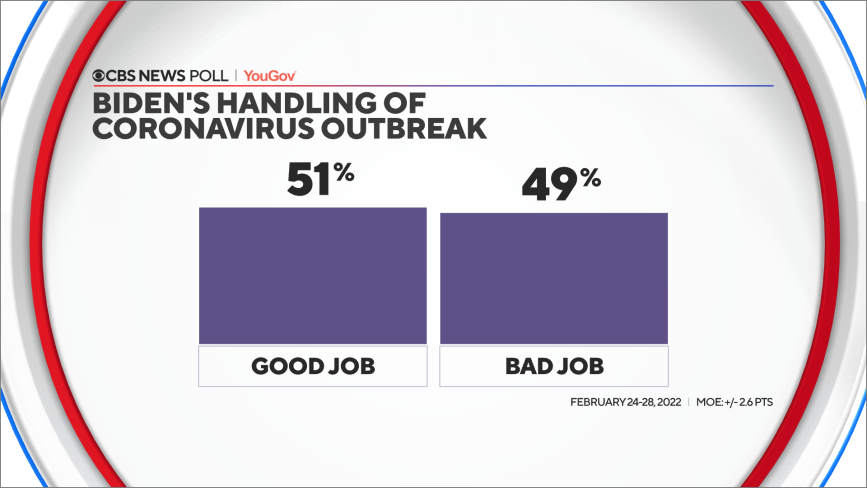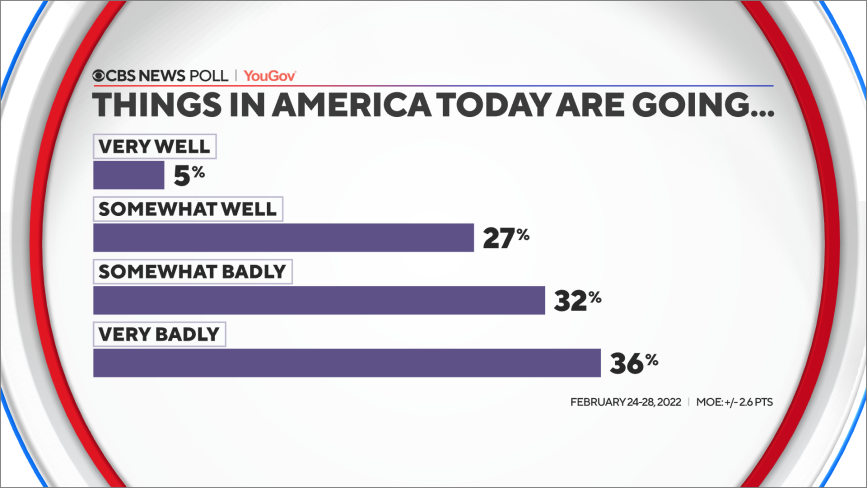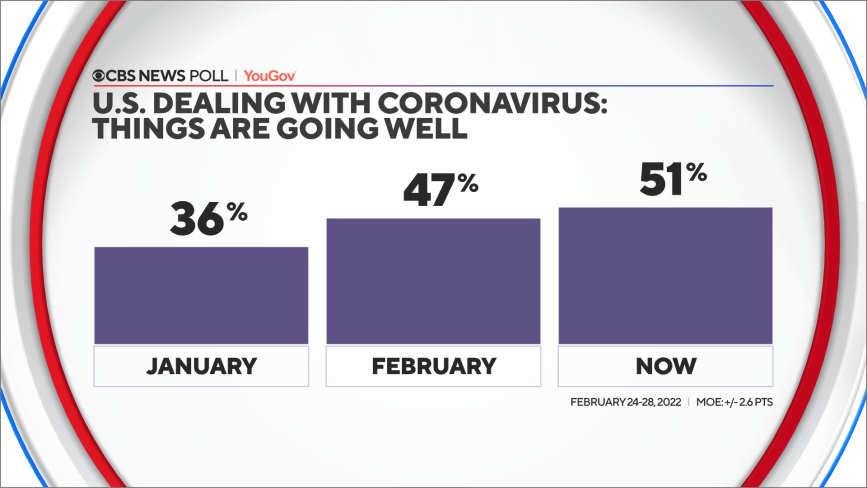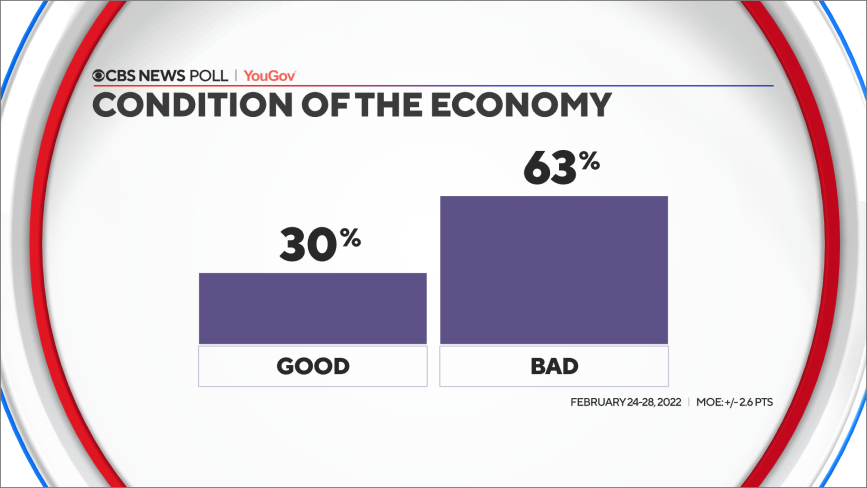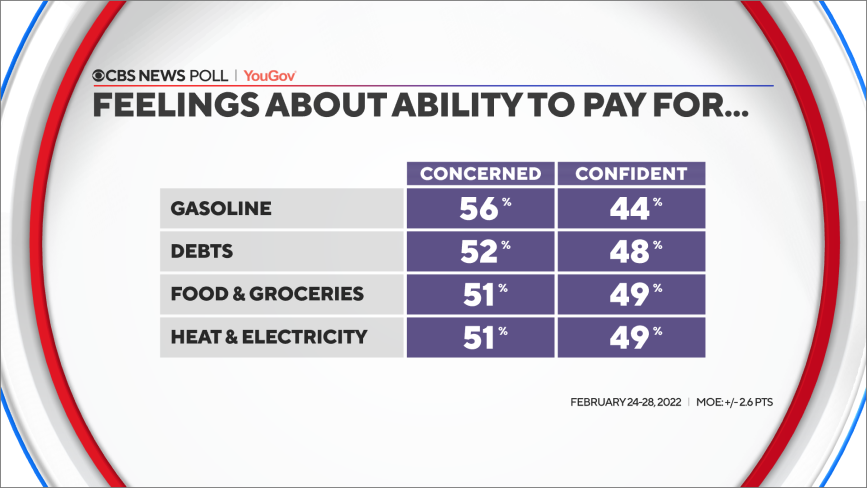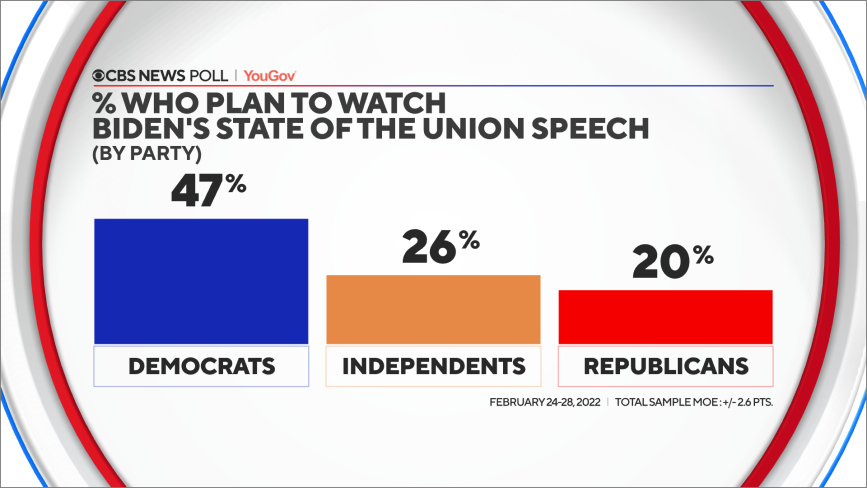There is wide support for Russia sanctions, protecting allies after invasion - CBS News poll
U.S. actions in response to Russia's invasion of Ukraine — including sanctions and protecting NATO allies nearby — find wide, bipartisan support from Americans.
But Americans also voice concern about the conflict widening further. And so those who plan to watch President Biden's State of the Union address say the war — even more so than the economy, inflation, and the pandemic — is the top thing they want to hear about tonight.
There's also a widespread sense of the importance of these unfolding events: 87% say the invasion of Ukraine matters to U.S. interests, including a majority 58% who say they matter a lot.
And one reason for seeing this as important: most are at least somewhat concerned this could lead to a wider war.
But there's a place most Americans do draw a line: a large majority wouldn't want U.S. troops sent to fight in Ukraine — something President Biden has said the U.S. will not do. Majorities of both Democrats and Republicans oppose sending U.S. forces to Ukraine.
Evaluating Biden
Mr. Biden gets better ratings for handling Russia and Ukraine than he does for handling domestic matters like inflation, but they're still net negative, and not meaningfully different than they've been before.
In part, that's because even as the steps his administration has taken against Russia find support from both Democrats and Republicans, Republicans say they nonetheless don't approve of Mr. Biden's handling of the situation.
This might reflect partisan cues in measures involving Mr. Biden specifically, or simply differences between policy evaluations and personal measures for him. It may also reflect the fact that the invasion happened at all.
The implications for the U.S. standing in the world are also seen through a partisan lens: for Republicans, it's shown the U.S. to be weaker. Democrats are on balance seeing the U.S. come out stronger, but it's not an overwhelming judgment.
Mr. Biden's overall approval rating is 44%, up a tick from last week, but still in the very narrow range where it has been over the last few months. His approval rating began to fall last summer with events in Afghanistan, declined further amid inflation concerns and has never rebounded to the levels seen at the start of his term.
Mr. Biden does get slightly positive ratings now for handling coronavirus, amid a decline in cases and a rising percentage who think U.S. efforts on it are improving.
The State of the Union
So, Mr. Biden will deliver his State of the Union address to a public concerned about events overseas, and also facing steep challenges on the domestic front: most continue to think the economy is in bad shape and things in the country aren't going well.
However, they do think things are improving with coronavirus.
A majority of Americans continue to say the economy is in bad shape.
Alongside those negative ratings on the economy and Mr. Biden's low marks on inflation, many Americans are concerned about their ability to afford month-to-month expenses.
As we've seen with previous presidents' State of the Union addresses, more of the president's own party tends to tune in, and we see that again now: most people who say they'll watch are Democrats or Biden voters, or both. During recent Republican presidencies, more Republicans tended to watch State of the Union addresses.
This CBS News/YouGov survey was conducted with a nationally representative sample of 2,238 U.S. adult residents interviewed between February 24-28, 2022. The sample was weighted according to gender, age, race, and education based on the U.S. Census American Community Survey and Current Population Survey, as well as to 2020 presidential vote. The margin of error is ± 2.6 points.
